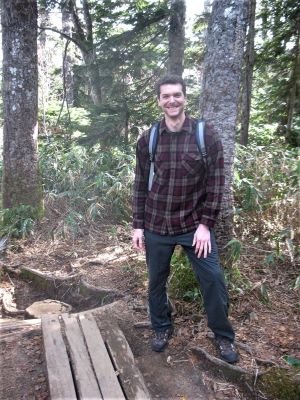
- This event has passed.
12/09/20: Charles Menza

Please join us for a Virtual Great Lakes Seminar Series presentation:
Time: 1:00-2:00 pm EST
Location: Virtual
Presenter: Charles Menza, (NOAA National Ocean Service, National Centers for Coastal Ocean Science, Marine Spatial Ecology Division, Biogeography Branch. Silver Spring, MD)
Title: Characterizing benthic habitats using remotely-sensed bathymetry and reflectance in high-priority areas of the Great Lakes
About the presentation: Remotely-sensed bathymetry and reflectance data are ideal for identifying and characterizing benthic habitats across the Great Lakes. They generally are collected over large swaths of area, provide data at sufficient spatial resolution to discriminate among important features and substrates, and are very accurate. An added bonus is that much of the nearshore zone of the Great Lakes already has remotely-sensed bathymetry and reflectance data. In this seminar I will present a collaborative effort by the National Centers for Coastal Ocean Science, the Office of National Marine Sanctuaries and the Great Lakes Environmental Research Laboratory to explore and characterize benthic habitats in Lakes Michigan and Huron. This effort includes collection and analysis of new multibeam bathymetry surveys, interpretation of existing nearshore LiDAR surveys, and ground-truthing from underwater videos at over 800 sites. When brought together these data provided digital maps characterizing the geomorphology, substrate composition and biological cover across 150 square kilometers of lakebed. I will discuss key strategies important to starting similar mapping efforts and scaling up, such as map prioritizations, predictive habitat modeling, and digital habitat map dissemination.
About the speaker: Charles Menza is senior scientist at the NOAA National Centers for Coastal Ocean Science in Silver Spring, Maryland. Mr. Menza is a spatial ecologist focused on habitat mapping and modeling which supports spatial planning in the ocean and Great Lakes. For the past 7 years he has worked alongside the Office of National Marine Sanctuaries in the Great Lakes and has led several field missions to map underwater habitats.
**Registration is not required**
_____________________________________________________
Questions? Contact Mary Ogdahl: [email protected]
Visit ciglr.seas.umich.edu for more information.

